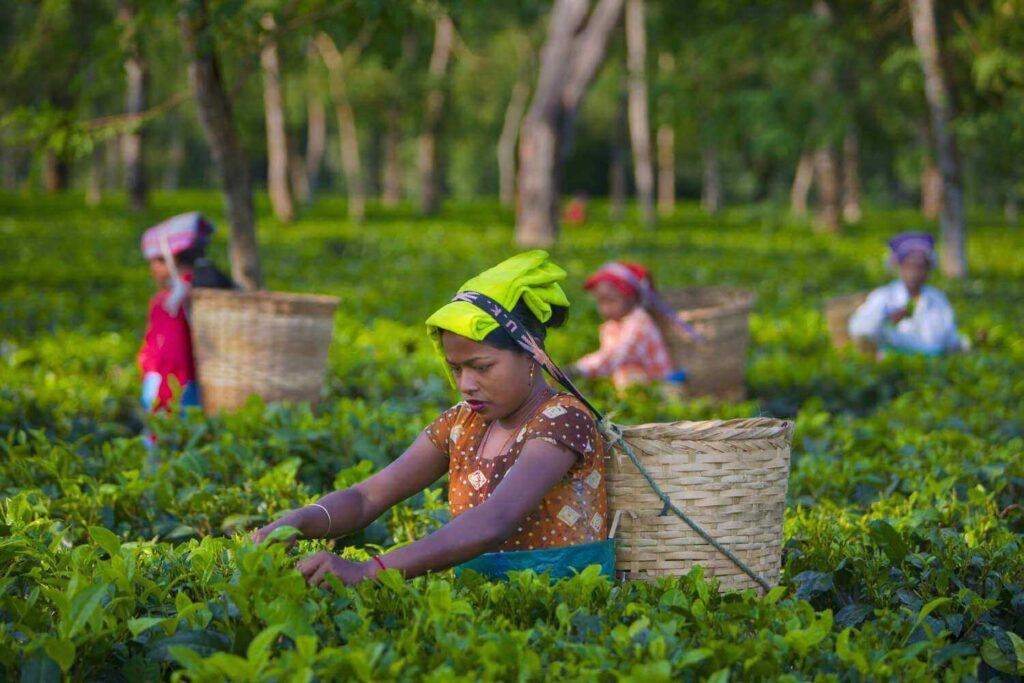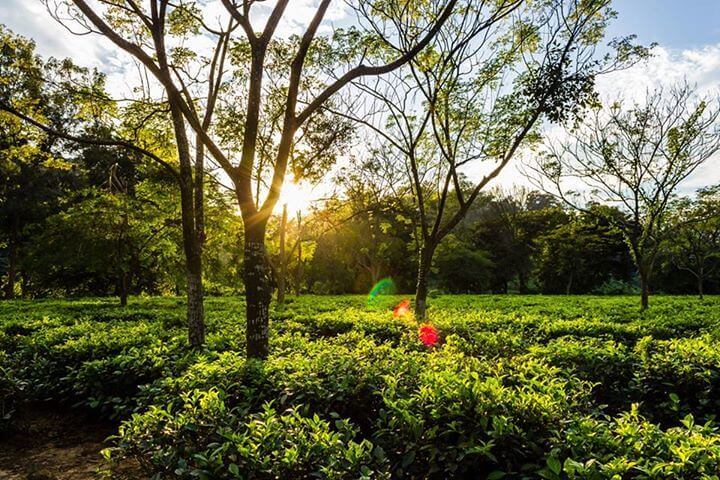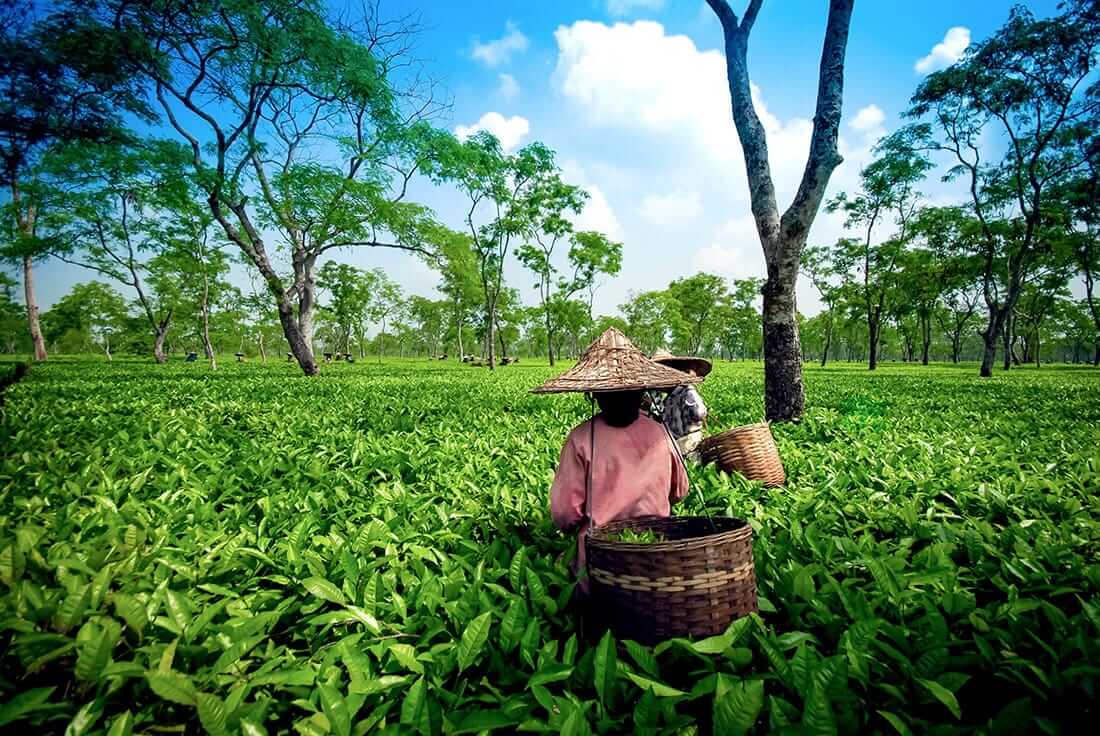The Origins of Assam Tea

Assam tea, with its robust flavor and rich history, has enchanted tea lovers for centuries. Here’s a glimpse into its intriguing beginnings:
1. Discovery and Early Cultivation
In the early 19th century, Scottish adventurer Robert Bruce stumbled upon wild tea plants in the upper Brahmaputra Valley of Assam, India. The local Singpho and Khamti tribes had long brewed beverages from these leaves. Bruce collected samples and seeds, sparking scientific curiosity. Although he didn’t live to see it classified, his brother Charles identified the plant as Camellia sinensis var. assamica—distinct from the Chinese tea variety.
2. Commercialization and Growth
The British East India Company recognized Assam’s potential and began large-scale tea production. By the 1830s, tea estates dotted the region. The Assam Tea Company, founded in 1839, played a pivotal role. Today, Assam remains the world’s largest tea-growing region, producing teas known for their malty flavor and bright reddish-brown color.
Feel free to explore more about Assam tea’s cultural significance, health benefits, and the lush tea gardens that dot this picturesque region. Happy sipping!
Unique Characteristics of Assam Tea
Assam tea, with its robust flavor and rich history, has enchanted tea lovers for centuries. Here’s a glimpse into its intriguing features:
1. Indigenous Plant Variety
Assam tea is primarily manufactured from the indigenous Camellia sinensis var. assamica. Unlike Chinese tea varieties, which struggled to thrive in Assam’s soil, this native plant flourished. Its leaves yield a robust, malty flavor and a bright reddish-brown color.
2. Tropical Climate Influence
Assam’s climate significantly impacts tea quality. The region experiences high rainfall during the monsoon season, with up to 250 to 300 mm (10 to 12 inches) of rain per day. Daytime temperatures soar to around 36°C (96.8°F), creating greenhouse-like conditions. These unique environmental factors contribute to Assam tea’s distinctive taste.
Feel free to explore more about Assam tea’s cultural significance, health benefits, and the lush tea gardens that dot this picturesque region. Happy sipping!
Assam Tea Today
Assam tea, with its robust flavor and rich history, continues to captivate tea enthusiasts worldwide. Here are the key aspects of Assam tea in the present day:
1. Breakfast Teas
Assam teas are prized for their body, briskness, and malty flavor. They often feature prominently in breakfast blends. For instance, Irish breakfast tea contains small-sized Assam tea leaves, resulting in a maltier and stronger morning brew.
2. World’s Largest Tea-Growing Region
Assam remains the world’s largest tea-growing region by production volume. Nestled along both sides of the Brahmaputra River, it borders Bhutan, Bangladesh, Myanmar, and China. The tropical climate—characterized by high rainfall during monsoons and scorching daytime temperatures—continues to shape the character of Assam tea.
Assam Tea Gardens: A Glimpse into the Verdant Estates
Nestled in the northeastern region of India, Assam is renowned for its lush tea gardens that produce some of the finest black and green teas. The Assam tea industry has a rich heritage, and a journey through these picturesque plantations unveils a fascinating story of tea culture, history, and tradition.
Manohari Tea Estate

The Manohari Tea Estate is the first on our list of best tea gardens in Assam. Since the British era, this renowned tea estate has been bringing you that fresh cup of morning tea. It’s settled in the upper region of Assam, at an elevation of 390 feet above sea level along the Indian-Burmese border. The estate covers an impressive 1800 acres, with 1000 acres dedicated to tea bushes. The quality and rich aroma of the tea leaves harvested here remain unmatched.
Assamica Agro Organic Farm
The Assamica Agro Organic Farm redefines the tea experience. Their ethical and natural tea leaves, produced by organic tea farmers in Assam, result in a healthy cup of tea free from pesticides and other chemicals. This farm not only focuses on tea quality but also enhances the livelihood of local farmers.
Sonapur Tea Estate

Beyond the surreal beauty of tea estates, the Sonapur Tea Estate takes you to Guwahati, known as the heart of the North-East. Established by the Britishers in 1924, this estate has been taken over by three generations of the Bhaduri Family. Their high-quality CTC tea brews a strong cup, and the estate’s journey began with producing Orthodox tea in its early years.
So, imagine waking up to the views of these sprawling tea gardens, where leaves are plucked for your morning cuppa. Assam’s tea gardens are more than just plantations; they’re a living testament to a centuries-old tradition that continues to bring happiness to households worldwide.
Assam Tea: A Nutrient-Packed Elixir
Assam tea, derived from the leaves of the Camellia sinensis var. assamica plant, is a robust black tea with a rich, malty flavor. Traditionally grown in the northeastern Indian state of Assam, it’s one of the largest tea-producing regions globally. Here’s why Assam tea deserves a spot in your cup:
1. Antioxidant Powerhouse
Assam tea boasts an impressive array of antioxidants, including theaflavins, thearubigins, and catechins. These compounds help combat free radicals, protecting your cells from damage and reducing inflammation. Sip on Assam tea to give your body a natural boost.
2. Heart Health Support
While research results vary, some studies suggest that polyphenolic compounds in black tea (like Assam) may reduce cholesterol levels and prevent plaque buildup in blood vessels. Regular consumption might contribute to heart health, although more research is needed.
3. Mental Alertness and Energy Boost
Assam tea contains caffeine, acting as a gentle stimulant. It enhances mental alertness and focus, making it an ideal morning companion. Enjoy a cup to kickstart your day without disrupting your sleep at night.
4. Immune System Boost
The antioxidants in Assam tea play a role in supporting your immune system. Sip on this elixir to stay resilient and healthy.
5. Weight Management Aid
While not a magic potion for weight loss, Assam tea can be part of a balanced lifestyle. Its moderate caffeine content may help boost metabolism and provide a gentle energy lift.
6. Digestive Harmony
Assam tea’s soothing properties can promote digestive health. Whether you’re unwinding after a meal or need a comforting cup during the day, Assam tea has you covered.
7. Oral Health
The natural compounds in Assam tea may contribute to oral health. Savoring a cup might be good for your teeth and gums.
FAQ’s
What makes Assam tea unique?
Assam tea is unique due to its robust flavor, malty notes, and rich aroma. It’s grown exclusively in the Assam region of India, which has a distinct climate and soil composition that contribute to the tea’s character.
Is Assam tea only available as black tea?
While Assam is famous for its black tea, it also produces green and white teas. However, black tea remains the most popular and widely consumed variety.
Is Assam tea good for heart health?
Some studies suggest that the polyphenols in Assam tea may help reduce cholesterol levels and support heart health. However, consult a healthcare professional for personalized advice.
What’s the best time to enjoy Assam tea?
Assam tea is versatile. Enjoy it in the morning for a wake-up call, during the day to stay focused, or as an evening treat without disrupting your sleep.












